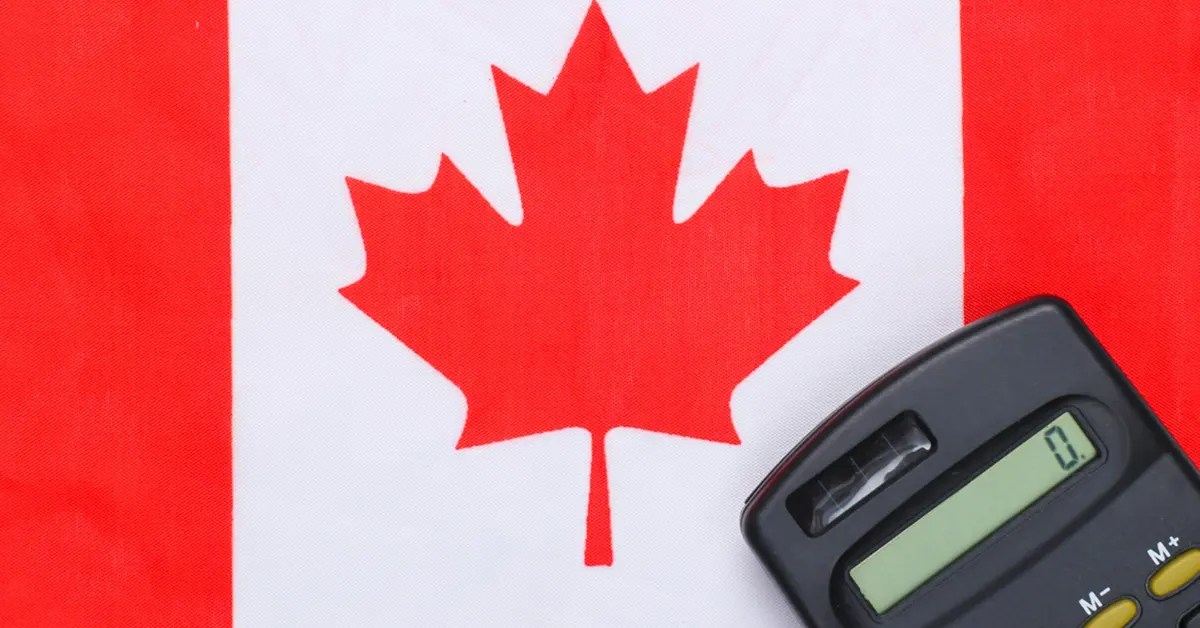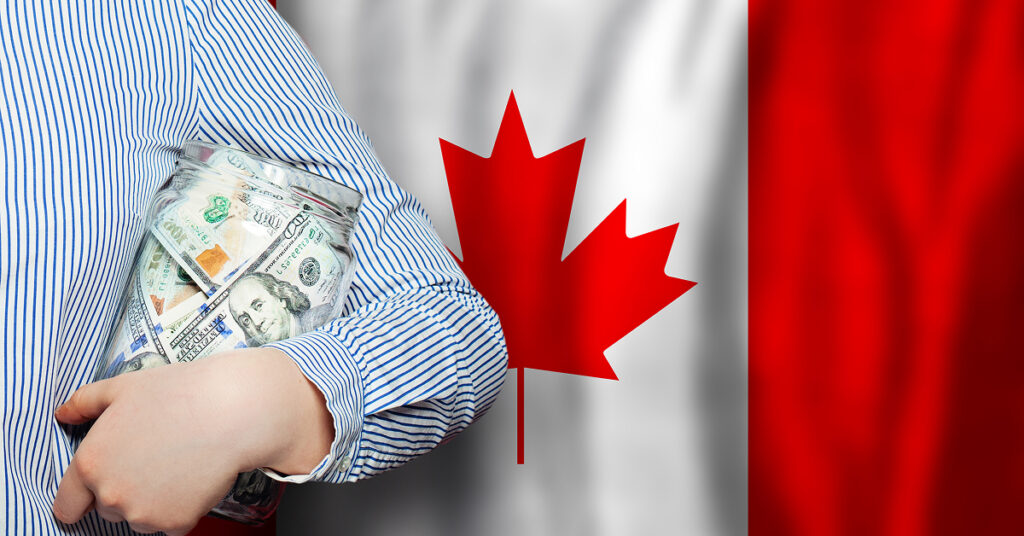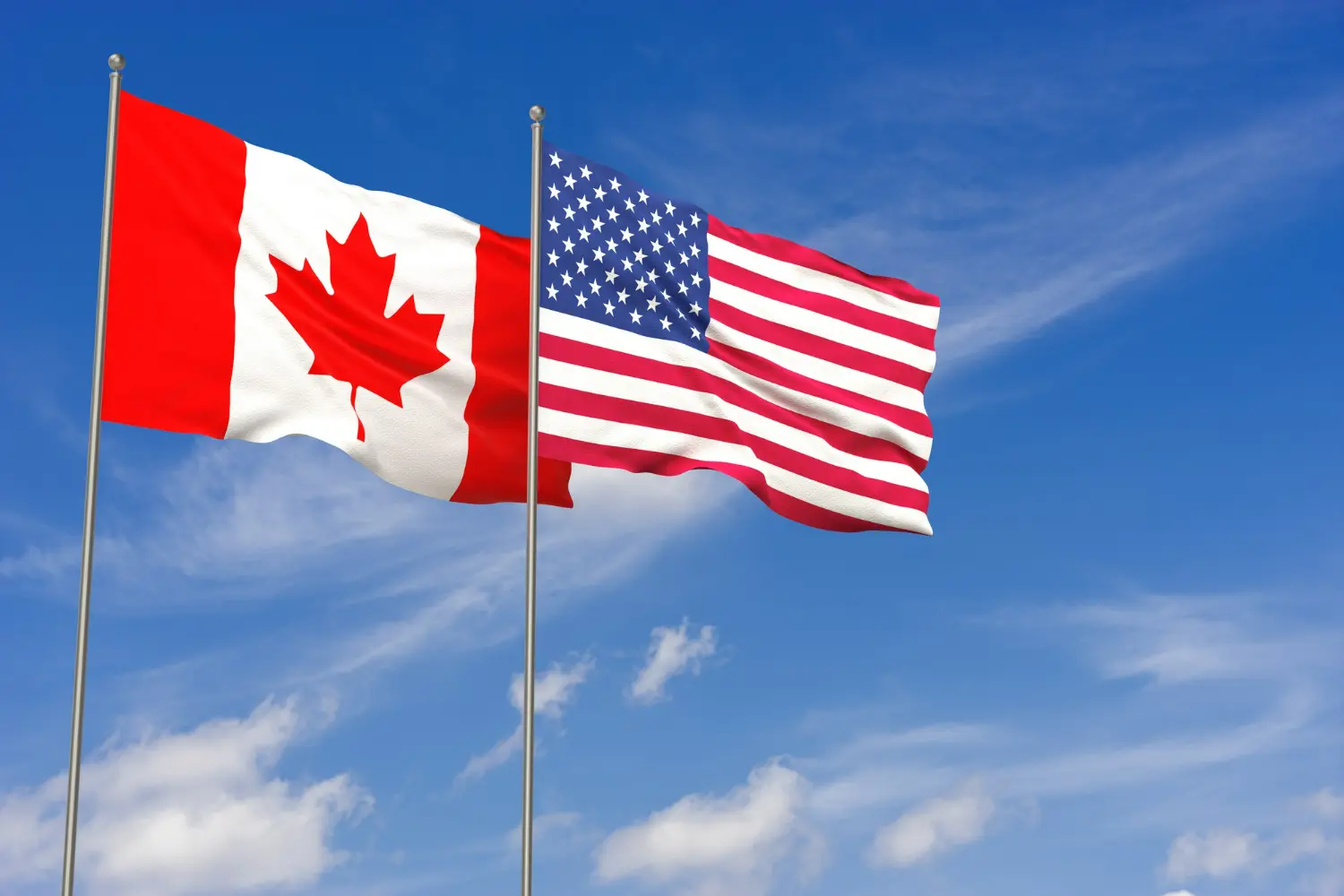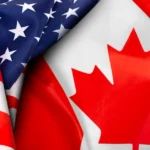Can Canada Compete Amidst New U.S. Tariffs?

North America is currently facing significant economic challenges, with the U.S. President Donald Trump’s proposed tariffs and Canada’s Liberal leadership race introducing new dynamics into the financial landscape. These developments are poised to influence Canada’s housing market and broader economy, presenting both risks and opportunities for Canadians.
Table of Contents
Trump’s Tariffs: Implications for Canada
In early February 2025, President Trump announced a 25% tariff on imports from Canada and Mexico, alongside a 10% tariff on Canadian energy resources. This move aims to address concerns over illegal immigration and drug trafficking but carries substantial economic repercussions. The tariffs are expected to disrupt the $773 billion trade relationship between the U.S. and Canada, impacting sectors like energy, automotive, and manufacturing. Analysts predict that such tariffs could lead to a 2.5% decline in Canada’s GDP by early 2026, an inflation rate increase to 7.2% by mid-2025, and a rise in unemployment to 7.9% by the end of 2025, potentially resulting in 150,000 layoffs.
The housing market is particularly vulnerable. Tariffs on building materials, especially the additional 25% on Canadian softwood lumber, are anticipated to raise construction costs, thereby exacerbating housing affordability issues. The National Association of Home Builders (NAHB) has expressed concerns that these increased costs will discourage new development, leading to higher home prices for consumers.
Moreover, the tariffs could strain provincial economies, with regions like Ontario, Quebec, Alberta, Saskatchewan, British Columbia, and Nova Scotia being notably vulnerable due to their economic dependence on U.S. trade and weaker financial health. While Canada’s overall AAA credit rating remains secure, these provinces may face higher risks, potentially necessitating significant fiscal support.
Canada’s Liberal Leadership Race: Potential Economic Shifts
The resignation of Prime Minister Justin Trudeau in January 2025 has triggered a Liberal leadership race, introducing potential shifts in economic policies. Housing affordability remains a critical issue, with the Liberal Party previously implementing measures such as an anti-flipping tax on residential properties to curb speculative demand.
Leadership candidates are expected to propose new strategies to address housing challenges, which may include revising mortgage regulations, implementing stricter controls on real estate speculation, and increasing support for affordable housing projects. These policy changes could influence lending practices, investor confidence, and the Bank of Canada’s rate decisions, thereby impacting homeowners and potential buyers.
Strengthening Domestic Manufacturing: A Strategic Response
In light of the proposed tariffs, there is a growing discourse on bolstering Canada’s domestic manufacturing capabilities. Historically, Canada has provided cash incentives to retain operations within the country. However, the current climate suggests a need for alternative incentives to encourage manufacturing growth. This strategy aims to reduce reliance on U.S. markets, create jobs, and stabilize the economy amidst trade uncertainties.
Some Canadian companies are already adapting to the changing landscape. For instance, Montreal-based transportation and logistics firm TFI International announced plans to move its legal registration to the U.S., aligning with its predominantly American operations and shareholder base. This move reflects a strategic shift to navigate the challenges posed by the tariffs and underscores the importance of a robust domestic manufacturing sector.
Navigating the Path Forward
The convergence of U.S. trade policies and Canada’s evolving political landscape presents a complex scenario for the nation’s economy and housing market. Canadians are encouraged to stay informed, engage in financial planning, and consider strategic investments to navigate these changes effectively.
With rising economic uncertainty due to Trump’s proposed tariffs and Canada’s shifting political landscape, Canadians must stay informed and proactive. The 25% tariffs on Canadian goods could disrupt key industries, leading to increased costs, job losses, and further instability in the housing market. At the same time, the Liberal leadership race may bring new policies affecting inflation control, mortgage regulations, and housing affordability.
The potential for increased domestic manufacturing offers hope for long-term economic resilience, but strategic planning is crucial. Homeowners, investors, and businesses should monitor these developments closely, reassess financial strategies, and explore ways to mitigate risks.
At Cannect, we are committed to providing guidance and solutions to help you adapt to this evolving economic environment.
At Cannect, we are committed to providing expert guidance and financial solutions to help you navigate Canada’s evolving economy. With Make Money Count on YouTube, where we break down market trends, mortgage strategies, and smart investment opportunities.












